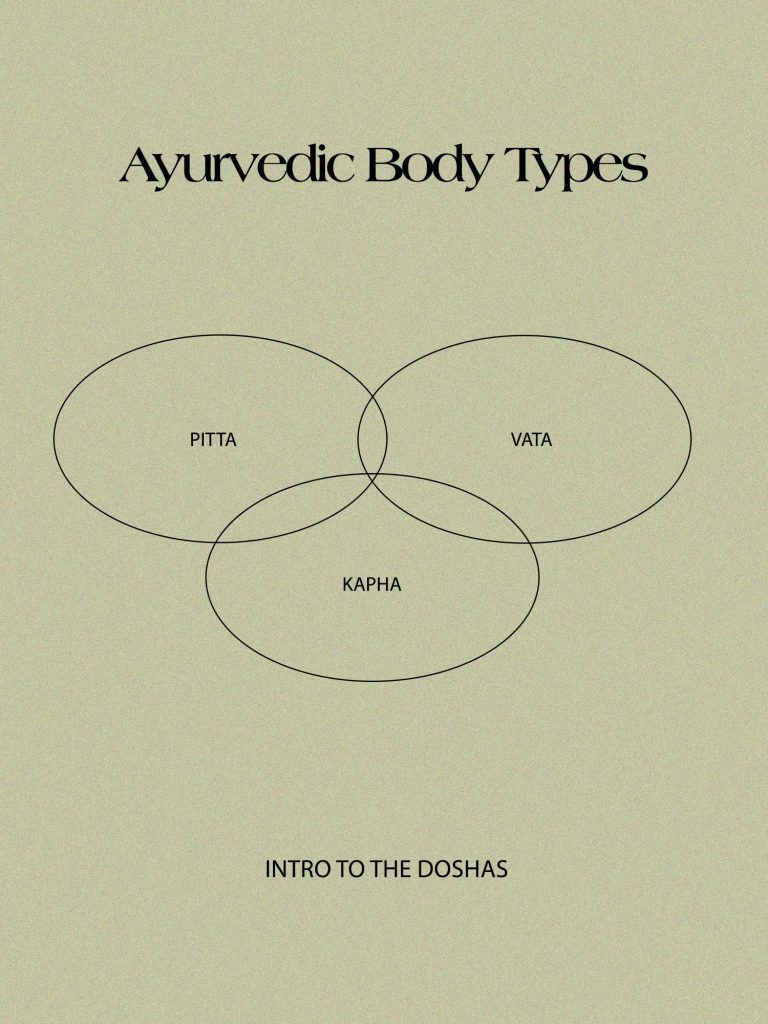
Over the past 10 years, I have learned so much about mental and physical health that I can confidently say I know quite a bit about it. I am a sponge; when I am interested in something, I soak in all the literature and data that can be found. With knowledge also came practice, and I practiced a lot.
With my tendency to fall into extremes, it was also not hard for me to accomplish certain goals. I trained my discipline by doing 75 Hard, and I became fitter and stronger than I ever thought I could by following dedicated fitness and food regimes. However, I always felt like with achieving one specific goal (whether it was physical or mental), I had to compromise on other aspects. It never really clicked for me. Until I came across Ayurveda.
With a lot of scientific knowledge, it was hard for me to be open to a holistic approach at that time, but somehow it kept me wanting to learn more. I was intrigued by the fact that a holistic medicine concept that was founded 3000 years ago, without all the technology and resources we have today, has so much knowledge and so many systems that we also now use in Western medicine.
Ayurveda opened a door for me to a wholesome approach that covers all aspects of life. But not only that; instead of looking at an entire population to cure (mental and physical) diseases, it looks at individuals.
What is Ayurveda?
Ayurveda is an ancient healing system that originated in India over 5,000 years ago. It’s also known as The Science of Life, Ayur meaning life and Veda meaning science. Ayurveda emphasizes a balanced lifestyle to promote physical, mental, and spiritual well-being. Understanding the foundational principles of Ayurveda can help you achieve harmony with your body, mind, and environment.
What are the foundational principles of Ayurveda?
1. The five elements (Pancha Mahabhutas)
According to Ayurveda, everything in the universe, including the human body, consists of five basic elements:
- Earth (Prithvi)
- Water (Jala)
- Fire (Agni)
- Air (Vayu)
- Ether (Akasha)
These elements combine in different ways to form the three Doshas, which are essential for understanding how Ayurveda works to maintain balance in our bodies.

2. The three Doshas: Vata, Pitta, and Kapha
The key concept in Ayurveda is that the five elements combine to form three Doshas that regulate different physiological and psychological functions in the body.
- Vata Dosha (Air & Ether): Represents movement, responsible for bodily functions such as breathing, circulation, and nervous system activity. People with a dominant Vata are usually energetic, creative, and quick-thinking but can become anxious or fatigued if imbalanced.
- Pitta Dosha (Fire & Water): Governs transformation, such as digestion and metabolism. Pitta types are often driven, ambitious, and passionate. When imbalanced, they may experience anger, irritability, or inflammation.
- Kapha Dosha (Earth & Water): Represents structure and stability in the body. Kapha types are generally calm, nurturing, and strong. An imbalance can lead to lethargy, weight gain, or attachment issues.
Understanding your dominant Dosha can help you find the ideal diet, exercise, and lifestyle to maintain balance and health.
3. Prakriti: Your unique constitution
Prakriti refers to your individual constitution, determined at birth by the unique combination of the three Doshas. You can see this as your blueprint! It defines your physical, mental, and emotional tendencies. By understanding your Prakriti, you can make lifestyle choices that enhance balance and prevent disease.
4. The concept of Agni (Digestive Fire)
In Ayurveda, digestion is viewed as a central factor in maintaining health. Agni (digestive fire) is responsible for breaking down food, absorbing nutrients, and eliminating waste. Weak Agni can lead to poor digestion, toxin buildup (Ama), and disease. Strengthening Agni is a core component of Ayurvedic healing through diet and lifestyle.

5. Ama: Toxins in the body
Ama refers to the toxic residue formed due to improper digestion, stress, and unhealthy lifestyle habits. It is considered the root cause of most diseases. Ayurveda offers cleansing practices like Panchakarma to eliminate Ama and restore balance.
6. Balance and Imbalance
Ayurveda is all about balance. Imbalance in the Doshas can lead to physical and emotional distress. For instance, an excess of Vata may cause anxiety and insomnia, while too much Pitta can lead to anger and digestive issues. Ayurveda uses personalized approaches to restore Dosha balance through diet, lifestyle, herbal remedies, and mindfulness practices.
7. Ayurvedic lifestyle: Dinacharya and Ritucharya
Daily routines (Dinacharya) and seasonal routines (Ritucharya) are vital for maintaining balance. These practices involve:
- Waking up early
- Oil pulling
- Tongue scraping
- Exercise (yoga)
- Meditation
- Eating meals at the right time and in the right quantity for your Dosha.
Aligning your daily routines with the rhythm of nature can promote balance and well-being.



[…] Want to learn more about the foundations of Ayurveda? Read this article! […]